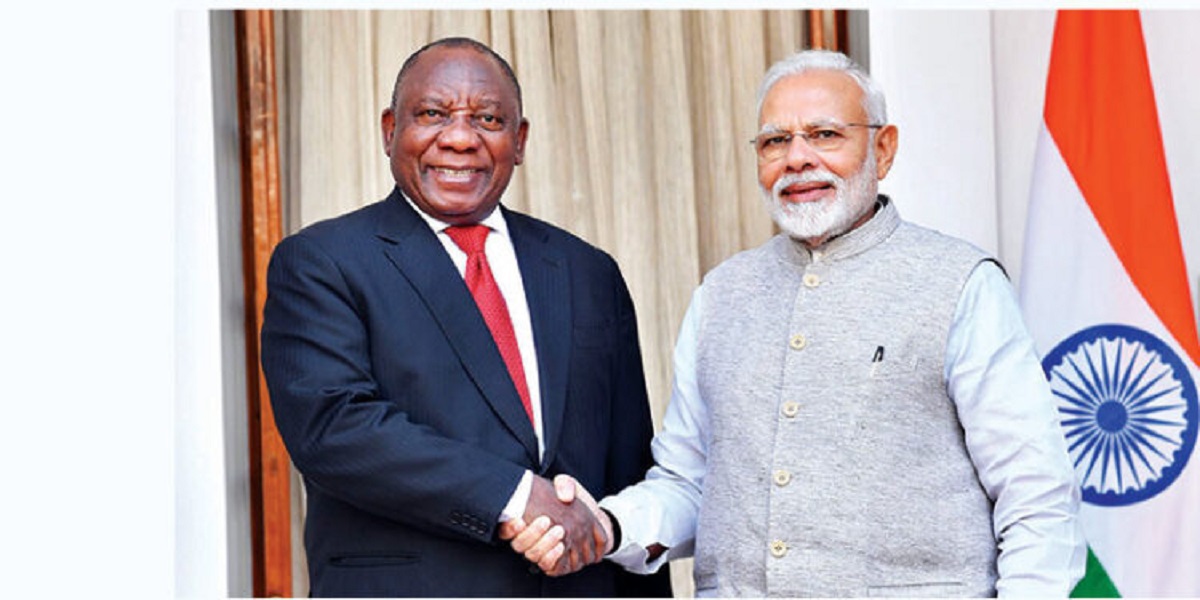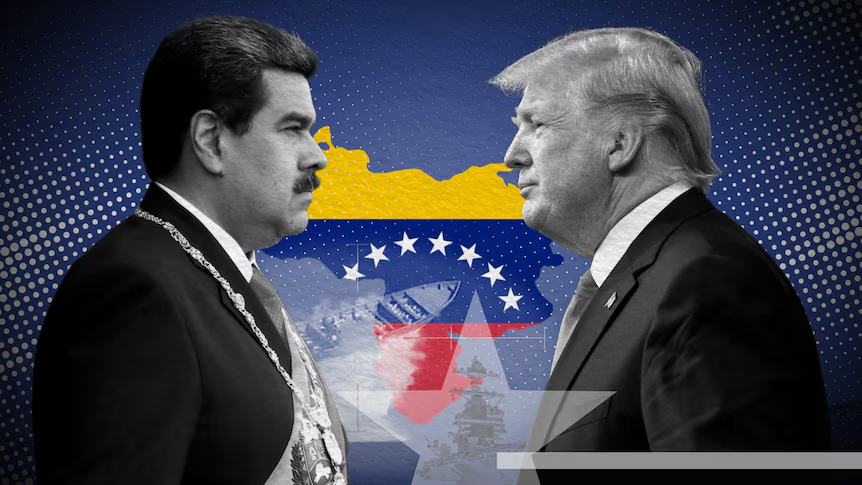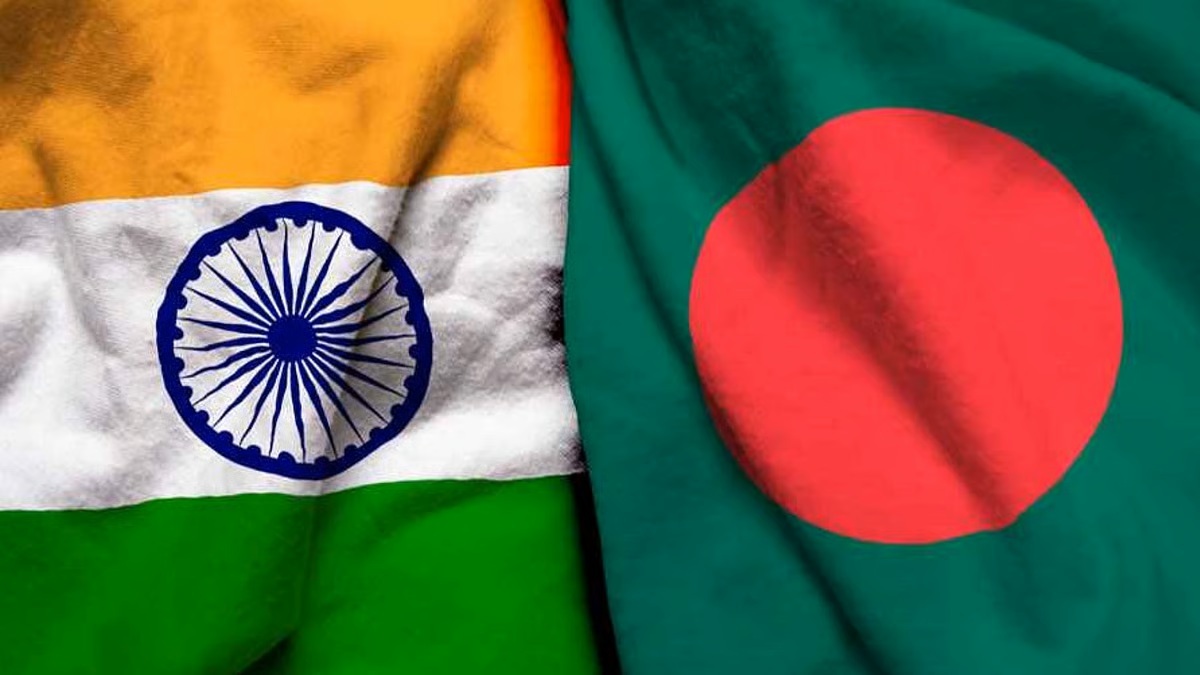Former President Mandela once said, ‘India and South Africa are two countries held so closely by bonds of sentiment, common values, and shared experience, by the affinity of cultures and traditions and by geography’. Based on similar values, ideas, interests, and historical personalities like Gandhi and Mandela, both nations have a fundamental and unique bond that goes back several centuries. In spite of this, their bilateral relationship remained hostile for a very long time due to South Africa’s apartheid regime, and it wasn’t restored until the early 1990s when the apartheid system was overthrown. India and South Africa share a common history of fighting for independence from colonialism, and their shared experiences and strengths have affected the way they perceive the world and the responsibility to improve the lives of all people. This responsibility is reflected in their foreign policies. Speaking at Jawahar Lal Nehru University in December 1996 the then Deputy President Thabo Mbeki observes that ‘Our common hope of success will depend on our ability to act together. We are reassured that we can count on India as our strategic partner in this historic endeavour which seeks to give birth to a new world order of just and lasting world peace, prosperity for all peoples, and equality among nations.
From Apartheid to Alliance: A Historical Background
India and South Africa share a century-old mutual friendship despite only having formal diplomatic ties for thirty years. The relationship between South Africa and India extends back to the time Mahatma Gandhi began his Satyagraha and other political experiments there, more than a century ago. When the South African government began enforcing racial segregation, the bilateral relationship suffered. India was the first country to terminate economic ties in the late 1940s since it was absolutely against and opposed to the apartheid policy. Later, India imposed full diplomatic, commercial, cultural, and sporting sanctions on South Africa. It also made a concerted effort to bring the apartheid issue up at nearly every multilateral forum, including the UN, NAM, Commonwealth, and other regional organisations, in order to impose comprehensive sanctions on the apartheid regime. By permitting the African National Congress (ANC) to establish an office in New Delhi in the 1960s, which enabled South Africans to gain access to international forums, India supported South Africans in to fight against racial segregation.
After a forty-year gap, the two nations’ diplomatic, cultural, trade, and sporting ties were restored in 1993, the year South Africa ended its apartheid policy. In May 1993, a cultural centre was officially opened in Johannesburg. Diplomatic and consular links were restored during the November 1993 trip to India by the then-South African Foreign Minister Pik Botha. The Indian High Commission in Pretoria was officially opened in May 1994. In 1996, India opened a permanent high commission office in Cape Town, which was renamed the Consulate General of India in 2011. After decades of boycotts, India took the initiative to re-establish its sporting ties with South Africa in the 1990s and invited the South African cricket team to participate in its first international cricket tournament. India was the first nation to play a Test series in South Africa in the 1992–1993 season as a result of a goodwill gesture from South Africa.
Deepening Strategic Ties
Since the two nations established diplomatic ties in 1993, several bilateral agreements have been signed between them in a variety of fields, including business and economic cooperation, defence, culture, health, human settlements, public administration, and science and technology. The Technical and Economic Cooperation Programme (ITEC) of India has been an effective tool for fostering collaboration in human resource development. The Red Fort Declaration on Strategic Partnership between India and South Africa, which was signed in March 1997, laid the foundation for a revived relationship after South Africa attained democracy in 1994.
India and South Africa have also cooperated extensively in the realm of defence and security. In 2005, the two countries signed a defence cooperation agreement, which includes joint military training and exercises, as well as the exchange of information and technology. A Joint Declaration on the Strategic Partnership between India and South Africa was signed in 2010 and included several potential areas of collaboration, including energy, information and communication technology, and agriculture. Additionally, the cooperation hopes to foster intercultural exchange and develop ties between the two nations. Also, the two sides have collaborated to fight piracy in the Indian Ocean, with South Africa supporting Indian military units stationed there logistically. With the signing of a cybersecurity memorandum of understanding in 2018, both nations have also been attempting to improve their cybersecurity capacities.
The two have strengthened their strategic connections through frequent high-level visits, which include the government’s heads of state. During PM Modi‘s visit to South Africa on July 8, 2016, a number of MoUs and agreements were signed, including ones regarding ICT, a program of cooperation in the arts and culture, tourism, and the development of grassroots innovation in the field of science and technology. Cyril Ramaphosa, the president of South Africa, visited India in 2019. While there, he met with his Indian counterpart and signed a number of documents, including one that established a strategic alliance.
Bilateral Trade and Commerce
After China, India is South Africa’s second-largest trading partner in Asia. India is South Africa’s fourth-largest import partner and fifth-largest export partner. According to the Indian Ministry of Commerce, since diplomatic ties were established in 1993, economic interactions have increased from $10 million in 2015–16 to $17 million in 2021–22. The top Indian exports to South Africa include automobiles and their components, transportation equipment, pharmaceuticals, engineering goods, footwear, dyes and intermediates, chemicals, textiles, rice, diamonds, and jewellery, while the top South African imports from India include gold, steam coal, copper ores and concentrates, phosphoric acid, manganese ore, aluminium ingots, and other minerals.
According to a recent report by the Confederation of Indian Industry (CII) and Price Waterhouse Cooper (PwC), published in May 2018, approximately 18,000 people are directly employed by close to 140 Indian companies, which have invested close to $4 billion in South Africa. Some of the significant Indian investors in South Africa are Wipro, Coal India, Cipla, HCL Technologies, Tata Motors, Zomato, Mahindra & Mahindra, Vedanta, and Motherson Sumi. The South African companies SASOL, FirstRand, Old Mutual, ACSA, Shoprite, and Nando have made investments in India. Both nations are working to boost trade in the next years.
Cultural Roots of Relations
While the majority of Indian diasporas are in the African continent, South Africa is the second-largest home for Indians. With 3% of South Africa’s total population, there are more than 13 lakh overseas Indians who live. One of the largest Indian diaspora populations is located in Durban, the third-most populous city in South Africa. The majority of Durban’s residents, about one out of three, are Indian. India has been always a favourite destination for South African students. South Africa has successfully attracted more than one million Indian tourists last year. Indian Council for Cultural Relations (ICCR) has supported and funded many cultural events including ‘The Shared History Festival’, ‘The Rajasthani folk music/dance program’, Kalahari Desert Festival’, ‘The Manipuri dance festival’ and many more between 2017 to 2022, in South Africa to promote Indian art and culture.
Indian foreign policy under PM Narendra Modi places a strong emphasis on cultural aspects and soft power components, and the same is true of South Africa. In September 2019, South Africa hosted an India Festival with dance and music ensembles. A previous edition of this event was held in July-August 2014 to mark the 20th anniversary of diplomatic ties as well as the 100th anniversary of M K Gandhi’s return to India from South Africa. The Consulates and Mission are organizing events across South Africa to mark the 75th anniversary of India’s independence (Azadi Ka Amrit Mahotsav), including ‘Revisiting Gandhian Trail’, which showcases Mahatma’s illustration in promoting peace, nonviolence, and harmony.
Way Ahead
Their similar needs, engagement in the freedom movement, respect for democratic ideals, and long-standing relationships bind India-South Africa together. Both counties are staunchly believed in the UN reforms with permanent members of the security council. Two nations have equal needs in terms of development, energy security, economic growth with overall prosperity, artificial intelligence, space technology, climate change and environmental issue, and human security. India’s scientific advancements and space satellite program may ably help in South Africa’s agriculture, school education, and telecommunications. India needs the strategic cooperation of South Africa for a peaceful Indian Ocean region. Two countries are leading powers in their respective continents; while India making its global presence more visible, needs support from African continents. The 30-year relationship between the two nations has been on an unwavering trajectory, and at this point, bilaterally and multilaterally through the BRICS, IBSA, and other Fora, India’s close and friendly relationships with South Africa are just continuing to grow.
Disclaimer: The views and opinions expressed by the author do not necessarily reflect the views of the Government of India and Defence Research and Studies
Title image courtesy: Blitz India







